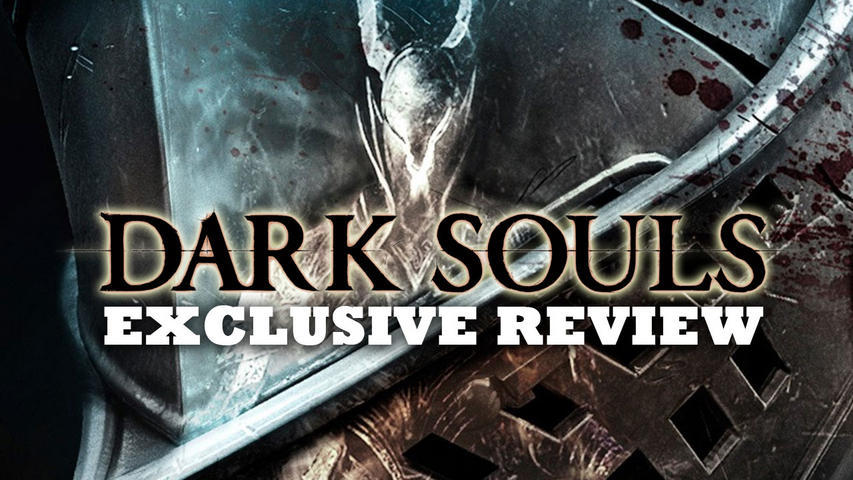Dark Souls Review — IGN
Dark Souls
Dark Souls
By Keza MacDonald
Updated: Aug 17, 2021 12:12 am
Posted: Sep 30, 2011 7:01 pm
There are some things that only videogames can do. For me, Dark Souls’ predecessor Demon’s Souls was emblematic of all of them. Where most games do their best to be something else – to tell a story like a novel, to impress with cinematic techniques like a film – Demon’s Souls is pure game, a complete and darkly fascinating vision that makes no concessions to the modern conception of how games should be. Instead, it was an exploration of how games could be; how bleak, how twisted, how focused and – most famously – how challenging. Most developers take pains to protect you from failure. FROM Software turns it into an artform.
Dark Souls is the next step along that path. Like Demon’s Souls, it is a brutal and demanding third-person action-RPG set in a world full of monstrous, disturbing things that are trying their hardest to end your life as quickly as possible. Using whatever weapons and armor you can scavenge, buy or forge, the challenge is to inch your way through this damned and deadly place, now and then coming across gigantic bosses that take especial valor and tenacity to kill. The eventual aim is to make it out alive, but there are about 50-60 hours of creative cruelty between you and that goal.
You will die, a lot. You will die on the end of a sword, on the edge of an axe, crushed by a boulder, impaled on fangs; you will be poisoned, eaten, stabbed, assassinated and pushed off cliffs. Death is everything in Dark Souls. It’s education, it’s progress, it’s the recurring stylistic and thematic motif that runs through all of its spectacularly varied, decaying and depraved environments. The first thing that you have to understand about this game is that survival is in itself a tremendous accomplishment. It can be punishing, cruel, sadistic and uncompromising. It can also be the purest, most thrilling adrenaline rush in gaming – it can take over your life and reward you like nothing else can.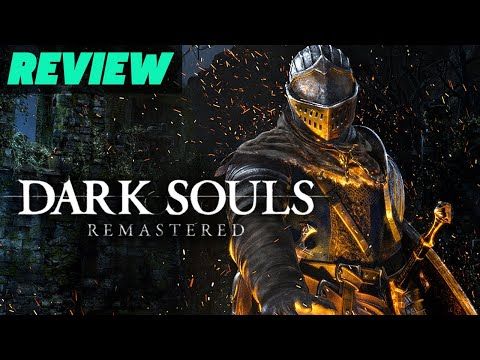 Exactly because your chances of success are so slim, each victory feels monumental.
Exactly because your chances of success are so slim, each victory feels monumental.
Loading
The open-world structure is the biggest change since Demon’s Souls. Beginning in a rotting asylum for the undead, you move through a vast, connected world comprised of fetid swamps, grandly dilapidated towns and castles, magma-carved caves and tunnels deep within the earth, trap-filled dungeons and much else. Some are reminiscent of Demon’s Souls’ environments, like the rickety, swampy, disease-ridden Blighttown, whilst others are entirely new; austere marble palaces, murky forests, ashen lakes.
The further you get in Demon’s Souls, the more hideous and creative the monsters and environments become. Thirty hours in, stuck in an underground poisonous swamp, you’ll feel like you’d give anything to see the sun again. Dark Souls’ design is so consistently twisted that it actually starts to encroach on your mental well-being after extended play – it never wavers for a second from its singular stylistic vision.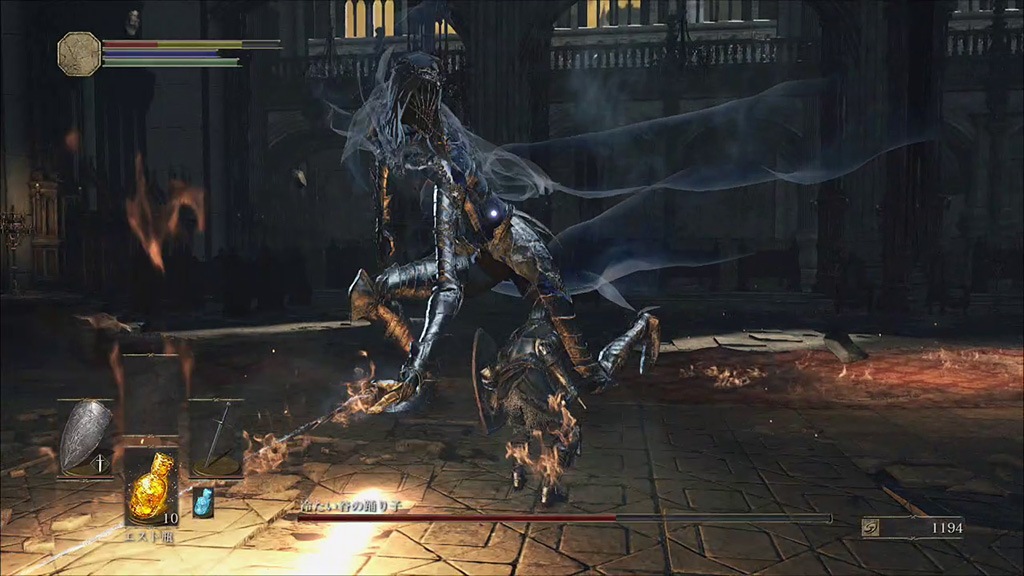
There’s no central hub, no safe haven for you to run back to and recuperate. Instead, there are bonfires strategically placed around the world. Bonfires are your checkpoints, the place where you can hunker down to replenish your health flasks, spend the souls of vanquished enemies on leveling up, repair your equipment, and meditate on your doomed existence. Resting at a bonfire ensures that you’ll spawn there the next time you’re dispatched, but resting also respawns all the enemies in an area (except bosses). Deciding when and where to rest, then, becomes a major part of your strategy. You can go through the same areas again and again, collecting souls and learning enemy attack patterns to make yourself stronger, or you can push onwards towards the next bonfire, risking the unknown.
imageUrl=http%3A%2F%2Fps3media.ign.com%2Fps3%2Fimage%2Farticle%2F119%2F1197278%2Fds01fire_1317398826.jpg&caption=These+will+kill+you+with+fire.
Online, you’ll frequently see the ghosts of other players huddled around the bonfires, giving you a sense of togetherness and camaraderie in situations that would otherwise feel depressingly hopeless. Dark Souls’ world is (for the most part) exquisitely designed around these checkpoints – shortcuts and secret passages open up that let you access more and more of the map from a single resting point, so making your way around a world that at first seems intimidatingly huge quickly becomes second nature.
Dark Souls’ world is (for the most part) exquisitely designed around these checkpoints – shortcuts and secret passages open up that let you access more and more of the map from a single resting point, so making your way around a world that at first seems intimidatingly huge quickly becomes second nature.
When you die in Dark Souls, you become Hollowed, and lose any souls that you’ve collected. Make it back to your bloodstain before dying again, and you can get them back – but you usually run straight into the clawed arms of whatever horrendous thing dispatched you the first time. Souls can be spent on leveling yourself up, buying an extra sliver of health or stamina or magical capability. Humanity, on the other hand, is much more precious resource; you can only get it from items or by beating bosses, whether in your own game or as a helpful Phantom in someone else’s. It can be used to kindle bonfires, giving yourself extra health flasks, and to revive yourself to Human, which lets you summon other players to help you in your game.
The combat system is the beating black heart at the center of Dark Souls. Given the sheer variety of demons after your blood – serpent-warriors, evil butchers, skinless undead, cat-alligators, skeletal swordsmen and much, much else – your survival depends greatly on how you adapt to changing situations. You can switch between armored tank and nimble thief just by switching around your weapons and armor. To be a mage or a healer, all you need to do is find a sorcerer’s catalyst or a talisman. The game never forces you into a certain playstyle. There’s no limit to what you can carry, for instance, so you can hold on to any dagger or bow or interesting spell in case it comes in handy hours later.
Loading
The way that magic works has changed since Demon’s Souls, making it much more difficult to rely on it as an easy way out and forcing you to engage with the heart-in-mouth, up-close melee combat. Instead of a magic bar, you get a certain number of casts for each spell each time you rest at a bonfire – powerful Pyromancy or life-saving Miracles will usually be limited to just a few uses.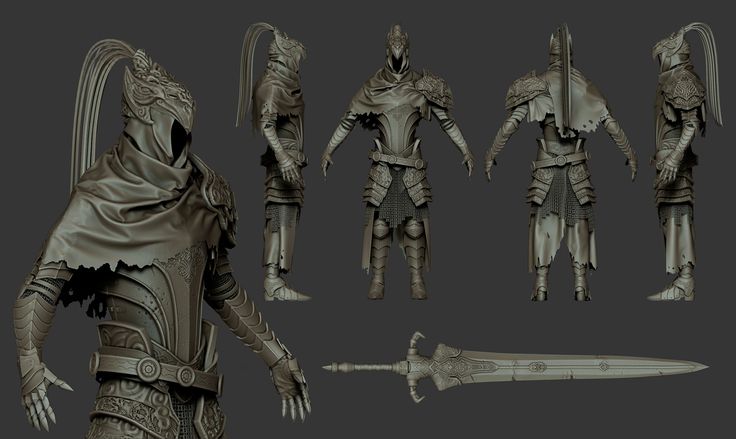 Magic is as relevant to the game as ever, but it’s no longer a cheap-and-easy, rechargeable long-range option. Sooner or later, especially in the boss battles, you’re going to have to wade on in there with an axe and risk your hide up close.
Magic is as relevant to the game as ever, but it’s no longer a cheap-and-easy, rechargeable long-range option. Sooner or later, especially in the boss battles, you’re going to have to wade on in there with an axe and risk your hide up close.
This is one of many reasons that Dark Souls is considerably harder than Demon’s Souls. (For context, I played through Demon’s Souls about four times, and nothing in that game gave me the same trouble – and the same rush – as some of Dark Souls’ crueler moments.) It appears to be FROM’s mission to send you into harrowing spirals of despondency and self-pity at every opportunity. Levels and enemies alike are designed to be especially lethal. Like its predecessor, the game starts off borderline impossible and becomes more manageable the longer you play as you get together some half-decent equipment and build up your stats, but Dark Souls discourages grinding.
There’s a slightly uneven, discouraging distribution of souls throughout most of the game, where extremely strong enemies reward you with only a few hundred souls.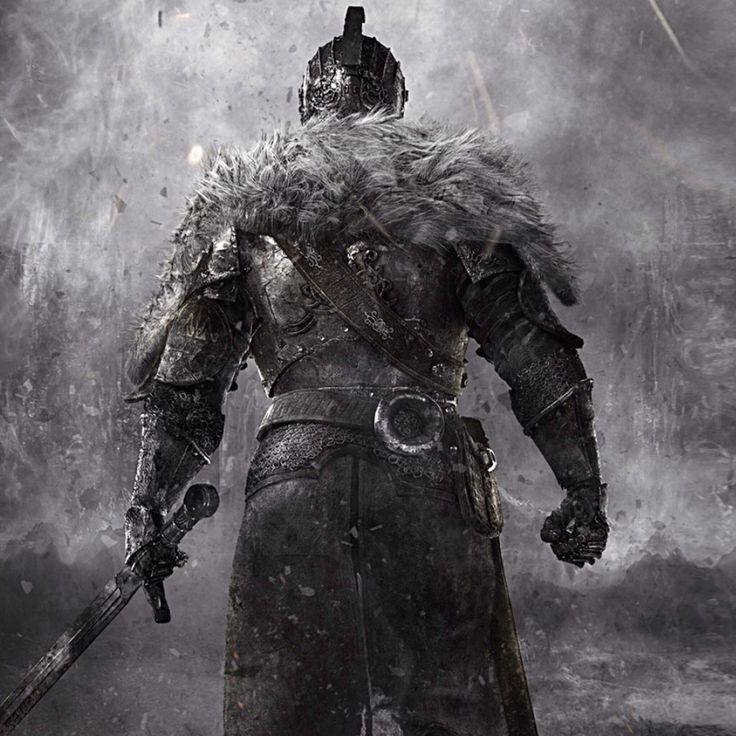 It evens out later; as the going gets tougher, the game design seems to acknowledge that you’ll need to build up your level through repeating sections that you already know, and litters them with soul-rich enemies to farm. But overall, it’s time-consuming and impractical to progress through grinding alone. Instead, Dark Souls’ difficulty pushes you towards its forward-thinking online features.
It evens out later; as the going gets tougher, the game design seems to acknowledge that you’ll need to build up your level through repeating sections that you already know, and litters them with soul-rich enemies to farm. But overall, it’s time-consuming and impractical to progress through grinding alone. Instead, Dark Souls’ difficulty pushes you towards its forward-thinking online features.
Dark Souls is tightly designed around its community and co-operative aspects, far more so than Demon’s. Because the game doesn’t bother to explain itself to you at all, you will rely on other players to build up your knowledge, sharing strategies, directions to secret areas and tips on where to find rare weapons and items, piecing together a collective understanding of arcane arts like weapons forging. This community aspect is the most extraordinary thing about Dark Souls – you’re all in it together, and the knowledge that there are others sharing your experience is what turns Dark Souls from a depressing solo journey into a breathtaking collective achievement.
imageUrl=http%3A%2F%2Fps3media.ign.com%2Fps3%2Fimage%2Farticle%2F119%2F1197278%2Fds03cut_1317399443.jpg&caption=These+will+cut+you+in+half%2C+and+push+you+off+the+ledge.
As you wander the parapets of the Undead Burg, you’ll occasionally hear the tolling of the bell at the top of the gargoyle tower, signifying someone else’s triumph over a boss. You’ll feel spurred on to success yourself, reassured that it’s not impossible, or you’ll smile at the memory of your own victory if you’re already further on. The shadows of other players move through the world, showing you snatches of someone else’s game. Bloodstains splatter across the flagstones where people have died, replaying the final seconds of their life when you touch them. By offering yourself up as a phantom to assist in someone else’s game, you can not only earn souls and Humanity, but you can learn new things, gaining experience from others. The absence of voice chat and matchmaking is integral to this sense of collective suffering and achievement.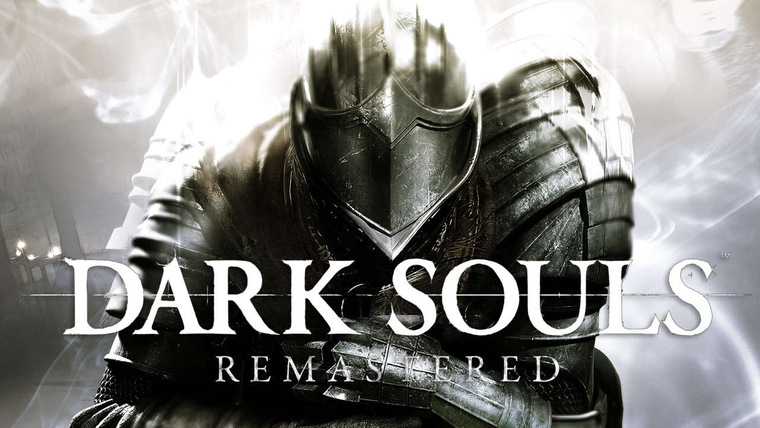 Your rescuer will always be a stranger.
Your rescuer will always be a stranger.
It is impossible to overstate how crucial online play is to the Dark Souls experience. Without it, it’s half a game (and about four times as difficult, too, which is really not what you want from a game that’s already difficult enough to sap your will to live). Multiplayer is your get-out clause, the thing that stops Dark Souls from ever being straightforwardly impossible, no matter what your skill level. There are points in the game where you actually need help; FROM’s tacit admission of this comes in the form of NPC summon signs that appear outside certain boss battles, letting you summon help even if you’re playing the game offline. Run out of Humanity, though, and this option is closed to you, leaving you with the choice between hours of grinding or hours of fruitless attempts at battles that are incredibly difficult on your own.
Like everything in the game, though, the multiplayer has its dark side. Players can invade your world if you’re in Human form and assassinate you. But this is a much less frequent occurrence than it was in Demon’s Souls. In order to invade other players at will, you actually have to join an in-game covenant – otherwise you have to rely on limited-use items. There’s also an indictment system where you can report someone who assassinates you, which enters their name into a giant, publicly-accessible Book of the Guilty. The emphasis this time around is very firmly upon helping other players, rather than hurting them.
But this is a much less frequent occurrence than it was in Demon’s Souls. In order to invade other players at will, you actually have to join an in-game covenant – otherwise you have to rely on limited-use items. There’s also an indictment system where you can report someone who assassinates you, which enters their name into a giant, publicly-accessible Book of the Guilty. The emphasis this time around is very firmly upon helping other players, rather than hurting them.
The difficulty is central to Dark Souls’ ethos, and shouldn’t be considered a fault. Without it, it wouldn’t be the game that it is, it wouldn’t require the same ingenuity and persistence from you, and its rewards would not be so sweet. There are times, though, when Dark Souls crosses the line from thrillingly challenging to straightforwardly sadistic. There are frog-like sewer-dwelling creatures that can Curse you with their attacks, instantly reducing your health bar to half its former size; the only way to get cured is to visit a healer hidden deep within a dangerous ghost-populated area that’s a long, long journey away (or to buy an item from a vendor, if you’ve got enough souls).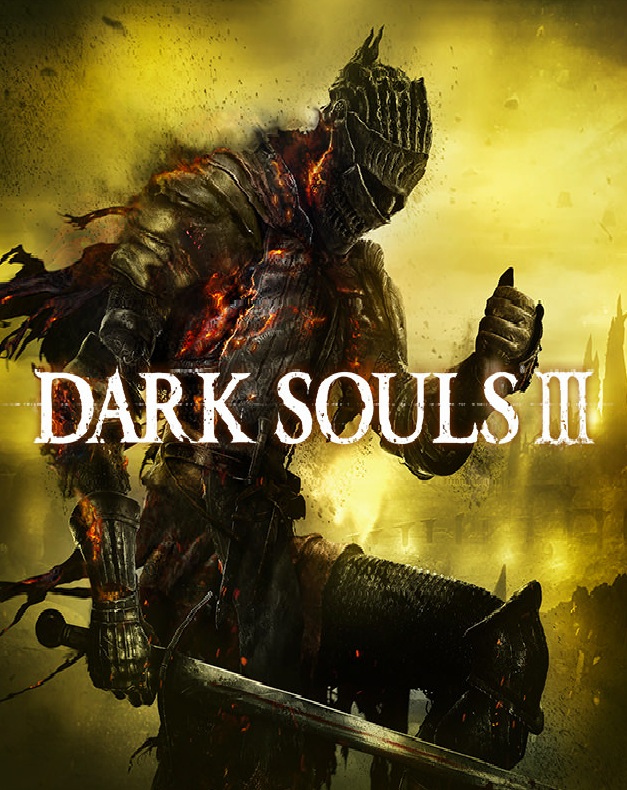
Making your way through Dark Souls’ death-trap world with half a health bar is hard enough, but the Curse effect stacks – so if you get caught again, you’ll be down to a quarter of a health bar. A third time, you’ll be down to an eighth. I know one Dark Souls player who lost something like 10 hours trying to make it to a healer when everything in the world could kill him with one hit. There’s punishing, and then there’s unfair.
One of the mid-game bosses, meanwhile, emits corrosive bile that swiftly degrades your equipment if you get stuck in its flow, potentially leaving you standing naked in front of a hideous dragon with a broken sword. There’s no way to repair weapons and armor once they’ve been completely destroyed, so it’s possible to lose all your best gear in this battle. Similarly, there are areas in the mid-section of the game where the main challenge isn’t overcoming the skinless poisonous demons that live there, but struggling not to get knocked off narrow, precarious ledges by their attacks.
Without wanting to spoil the plot, Dark Souls sends you deeper into the earth with every victory, becoming extraordinarily imaginative in its sadism. Dark Souls’ story is subtly and sparsely told, leaving you to write your own mythology, giving you only cryptic, unsettling verses of vague exposition to go on. The world speaks for itself.
But there are, despite its bleakness, real moments of beauty in Dark Souls – like the moment where you round a corner after one of the game’s early bosses and see the sun for the first time, shining down through a break in the clouds, or the moment when you’re standing at the top of a belltower looking out at the sprawling land below, trying to decide where to go next whilst you bask in the afterglow of a boss defeat. It’s these moments, not the hours spent butting your head up against the same boss without success, that you’ll remember about Dark Souls: the improbable, hard-fought victories, the game-changing discoveries, and the moments where a kind stranger lifted you out of a ditch you couldn’t escape on your own.
The reviewer’s job is difficult when it comes to a game like Dark Souls. I simply can’t unreservedly recommend that you buy it. It’s not a game that you play to relax. It doesn’t care in the slightest about whether you’re enjoying yourself, and it doesn’t give a fig for your notions of entertainment or your mental well-being. If you just play games for fun, this isn’t for you, and no amount of insistence on my part is going to change that.
But if you’re interested in the limits of the videogame form – to see just how focused, how pure and how uncompromising in its vision a game can be – Dark Souls is unmissable. If you take the time get into Dark Souls’ mindset, to begin to understand the twisted way in which it operates and taste the rewards behind its cruellest challenges, this is one of the most thrilling, most fascinating and most completely absorbing experiences in gaming.
Dark Souls Review
amazing
This is one of the most thrilling, most fascinating and most completely absorbing experiences in gaming.![]()
Keza MacDonald
Dark Souls: Remastered review – dark fantasy RPG makes glorious return | Role playing games
Dark Souls is such a touchstone for the video game industry that journalists’ constant references to the game have become a meme. Word-of-mouth buzz and a marketing campaign led by the tagline “Prepare to Die” saw Dark Souls become an unlikely hit in 2011. Seven years on, the price is still being paid. There have been two sequels, an endless array of merchandise, an army of writers and video-makers dedicated to dissecting the game’s mysteries and now Remaster.
The game is famous for the wrong things. Dark Souls is an inversion of the kind of stories games usually tell. It constructs a meticulous dark fantasy world in which almost everything is trying to kill you. The challenge lies not in conquering it but in surviving it and trying to understand it. It is opaque, even mystical; true comprehension always feels just out of reach.
For those familiar with the game, playing through again is a stark reminder of just how flabby Dark Souls’ imitators, and even its own sequels, have become. The world of Dark Souls is almost one landmass, with few loading screens, and the way it intricately twists around itself is an architectural feat. The spaces are cramped, the enemies placed like chess pieces. No video game world feels quite so solid, so marvellous to unravel and so plausible as Lordran.
The world of Dark Souls is almost one landmass, with few loading screens, and the way it intricately twists around itself is an architectural feat. The spaces are cramped, the enemies placed like chess pieces. No video game world feels quite so solid, so marvellous to unravel and so plausible as Lordran.
A major part of this is the weird and unsettling aesthetic. Lordran is a ruin, an abandoned remnant of what was once the gods’ playground. The bosses can be inscrutable monsters, but more often they are mighty wrecks of eras long gone: a giant wolf guarding her master’s grave; two knights standing guard in the throne room of a desiccated reign. Eventually, you’ll meet the greatest minds, the shapers of this world’s history, all mad and feral.
Dark Souls’ famed difficulty is improved by the online system, unique to the series, that creates transient connections. You can “summon” fellow adventurers to help you by finding their signs on the ground. When the hurdles seem too much, these companions can heave you over them – and once they have helped you fell a once-terrifying enemy, they too dissipate, wavering in and out.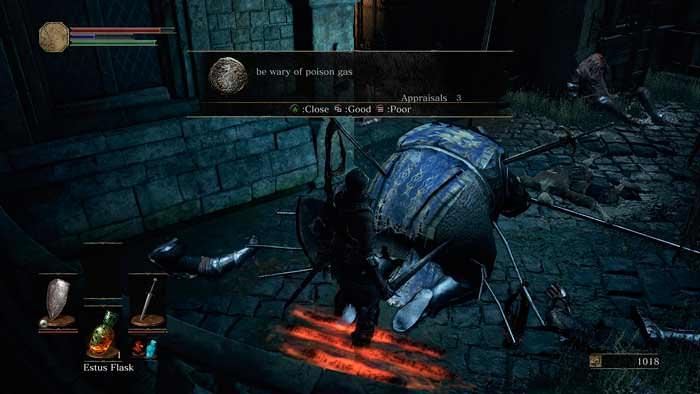
That’s the nice side of online play. On the other, there’s invasions. Most games have multiplayer menus where you choose to pit yourself against others. In Dark Souls, the first you know of an enemy in your world is when they’ve arrived. It is a revolutionary affront.
Such enforced fights are the pinnacle of Dark Souls, as other players throw low cunning and every exploitable trick in your face. I’ve stared at someone across a bridge for full five minutes before making a move. I’ve been slaughtered by gangs and I’ve been in that gang. I’ve been invaded by a player called Mr Troll who disguised themselves as a statue and waited by doorway to the boss’ lair for 10 minutes, then instantly killed me and a companion with a spear.
This remaster has been handled by Polish studio QLOC rather than the original developer, FromSoftware. It fixes technical issues (the infamous Blighttown seems like a new place), but retains what few gameplay flaws were there in the original. Minor changes to the online system allow more people to play together, and invaders to heal themselves. QLOC has worked assiduously on the sound and visual effects: the audio mix is much clearer than the original, with the ambient noise in Dark Souls’ environments bringing the muttering, encroaching atmosphere to new life. For me, however, the improved visual effects lose some of the ethereal qualities of the originals.
QLOC has worked assiduously on the sound and visual effects: the audio mix is much clearer than the original, with the ambient noise in Dark Souls’ environments bringing the muttering, encroaching atmosphere to new life. For me, however, the improved visual effects lose some of the ethereal qualities of the originals.
Remastered is the version of Dark Souls to get, mainly because it is so active online. This is one of the few video games that saw the medium’s future and tried new things.
If you want to visit Lordran and enjoy a straight-up bash-the-baddies quest, then you’ll find no better collection of bosses than this. If a new kind of adventure appeals, however, one in which quick fingers matter less than brains and human cunning, there’s still nothing like Dark Souls. After seven years its mystery has diminished, but it’s still among the best of the best.
- Dark Souls: Remastered is out now for £29.99. A Nintendo Switch version is forthcoming.
How the Dark Souls formula works on the example of Dark Souls III and why people still play it 5 years later
Talking about the influence of the Souls series on the gaming industry is endless.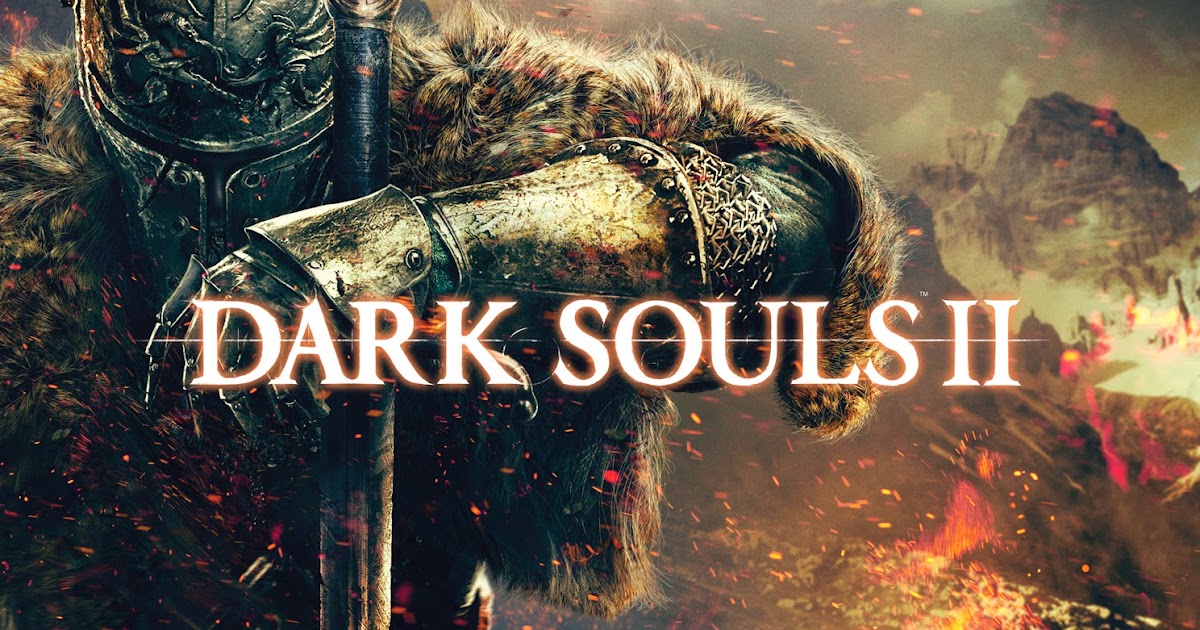 Bonfires, souls and rifts are strongly associated with these games, and any game that has something like this in itself immediately gets a tag in the incentive “similar to Dark Souls” or just a soullike.
Bonfires, souls and rifts are strongly associated with these games, and any game that has something like this in itself immediately gets a tag in the incentive “similar to Dark Souls” or just a soullike.
Content
Gameplay and variation
Social interaction
Still unparalleled
These games are literally for everyone
I won’t even talk about the «difficulty» characteristic of the entire series (which is not so «difficult», but more on that later).
And the last part of this series at the moment came out on March 24, 2016 — more than five years ago. And even after such an amount of time, Dark Souls III remains the only game in the series that still has a stable online in the region of 10k on the PC (according to SteamDB and SteamCharts ). This is more than the total online of all the previous parts, their re-releases and Sekiro to boot combined. nine0003
And while all soul fans are waiting for Elden Ring (including me) I want to talk about the reasons for the popularity of the series from the point of view of Dark Souls III.
Gameplay and variability
And let’s start right away with the fact that the «souls» did not come up with rolls to dodge damage, stationary respawn points, loss of currency on death, and so on — all this was before Demon’s Souls in many other games. The main achievement of the “souls” is that they managed to competently combine all these mechanics and create their own unique gameplay formula. nine0003
In fact, the entire gaming experience from Dark Souls can be divided into two parts: first, you, knowing nothing about this world and understanding nothing, overcome, by trial and error you study locations, opponents, bosses, properties of objects, learning more and more — this is approximately the path of most players who complete the game at most once.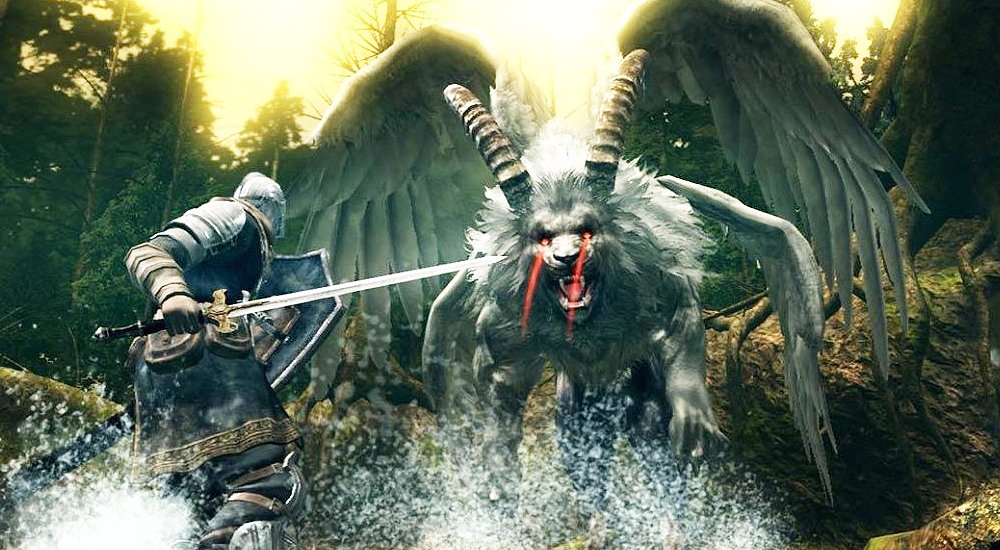 But at a certain moment something seems to click in the brain and you start playing a completely different game.
But at a certain moment something seems to click in the brain and you start playing a completely different game.
No, the elements of exploration and overcoming remain, but combat comes to the fore. Juicy, bright, with a great impact and good (and informative) animations — thanks to all this, fighting the undead is just a pleasure, and all this is complemented by a huge variability when creating various builds. nine0003
A bunch of weapons and their types, hardening and enchantment options, various special skills and other effects, various movesets and hitboxes, and these are only melee weapons, but there are also long-range bows and crossbows, magic, miracles and pyromancy, which have their own catalysts with different effects, Fashion Souls — all this opens up vast scope for a variety of gameplay and wagering.
Classic through sword and shield, using bleed or poison, isimod as a mage, pacifist build for constant healing and buffing of allies, one shot builds through endless stacks of damage in different ways, monsters in heavy armor wielding two shields — very few things limit your fantasy and people even manage to fully cosplay different characters from different universes, recreating their abilities as well. nine0003
The combination of great combat and such diversity creates one of the best action RPGs on the market, which still plays just fine and in which you can still create something new and unique, even though the game is explored already up and down.
Social interaction
In my opinion, this is the main reason why so many players still play souls, because From Software really created a truly unique online mode that is inextricably linked to the passage of the main campaign.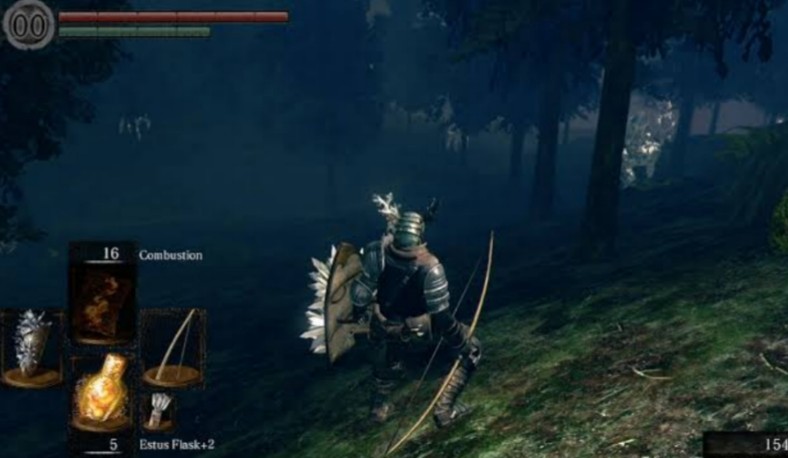 A lot of people actually underestimate the online component, considering it just not the most necessary appendage, but in fact, without a kind of co-op and invasions, the game loses a lot of content, as well as atmosphere. nine0003
A lot of people actually underestimate the online component, considering it just not the most necessary appendage, but in fact, without a kind of co-op and invasions, the game loses a lot of content, as well as atmosphere. nine0003
You constantly see the ghosts of other players who are in this location at the moment, there are messages everywhere, whether it’s useful advice or a joke, pools of blood can tell where the danger is — even playing completely alone you understand that it’s not so and alone in his journey, besides, it all helps to reveal the theme of cycles and vicious circles that permeate the entire series. Well, if some stage of the game seems really difficult, then you can call on the help of another player, besides, it’s just more fun together.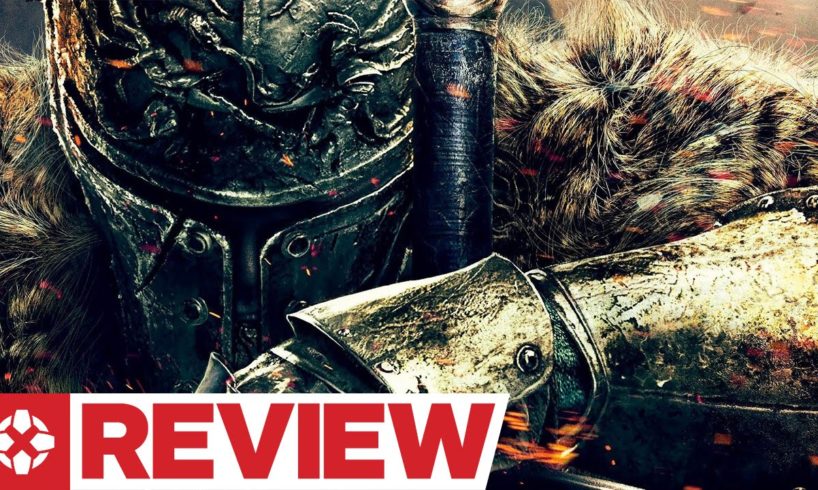 nine0003
nine0003
Complementing this whole atmosphere is that you can only contact other players using the gesture system, if you do not take messages into account — no voice or text chats. This is how primitive, exclusively prepared in advance by a pool of movements, you can not only convey your thoughts and communicate, but also express your character. Yes, even in the same messages you are only given to choose the first and second half from pre-prepared pieces, but even this is enough with your head.
Pvp deserves special attention. Like the rest of the entire online component, many underestimate this aspect of the game, although after more than four hundred hours of playing the game, I can say in all seriousness that the game is equally balanced for both pve and pvp.
A lot of weapons rely on certain timings, the same goes for various combos through special skills, and even some spells are sharpened specifically for fighting other people, and not with ordinary opponents or bosses.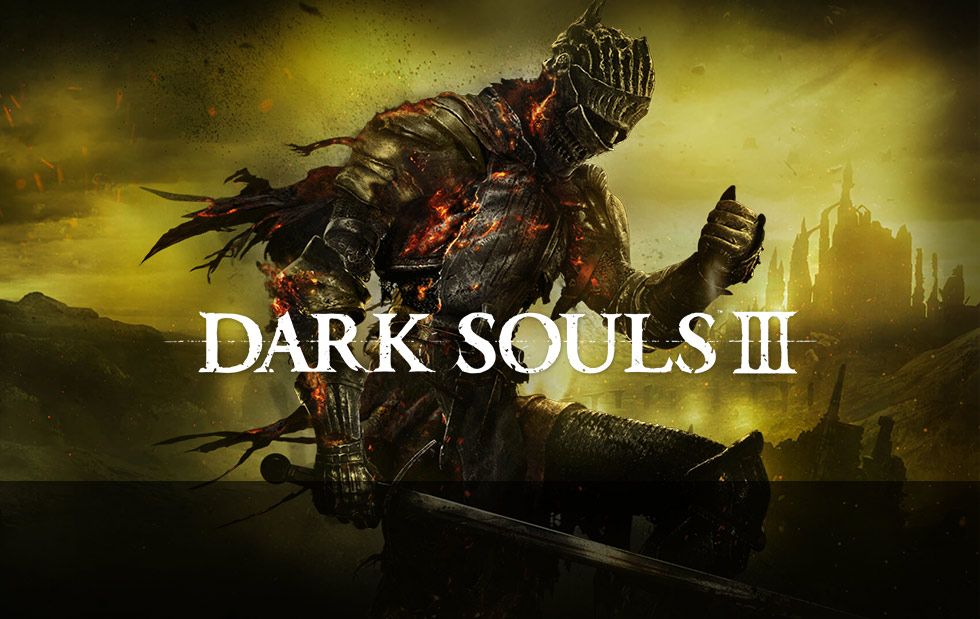 And it’s incredibly fun to jump in this game, because what could be better than to beat another player of the same kind, getting both the pleasure of excellent combat and the pleasure of an interesting battle. nine0003
And it’s incredibly fun to jump in this game, because what could be better than to beat another player of the same kind, getting both the pleasure of excellent combat and the pleasure of an interesting battle. nine0003
The main pvp mode is invasions and I just love them: invade a sweating host and ruin him all the way from one fire to another, run into a gank and get yourself in the face, chase the player all over the location and kill him right in front of the wall fog leading to the boss, engage in a fair duel, and after five intense rounds, leaving the host with literally one hp, bow and leave, receiving a bow in return — you never know what might happen the next time you use the Red Eye. Incursions are a never-ending source of diverse stories and unusual situations, which is why I love them so much. nine0003
The dark souls community is generally a perfect example of self-organization by a certain group of people, where many adhere to their own rules, although the game does not force them to do so. The same fight clubs that the players created because there was no functionality of separate pvp arenas without invasions. It was already in the second and third parts that they appeared fully, but people still didn’t stop organizing fight clubs — this is now an established ritual in the community, and they still have their own special charm and atmosphere. nine0003
The same fight clubs that the players created because there was no functionality of separate pvp arenas without invasions. It was already in the second and third parts that they appeared fully, but people still didn’t stop organizing fight clubs — this is now an established ritual in the community, and they still have their own special charm and atmosphere. nine0003
There are still no analogues
The term «soullike» has long been established in the gaming industry, characterizing games that in one form or another rely on elements of this series. But here’s the problem: there are just a bunch of soullikes, but no one has really managed to make another Dark Souls yet.
Many copycats focus on just one aspect of the game, whether it’s core gameplay through dodges and parries (Ashen), world structure and storytelling (Salt and Sanctuary), combat and build variety (Nioh), or even online interaction (Watch_Dogs 2), but none of them tried to combine it all together. nine0003
Each of these elements can work separately, but the beauty of souls is that they combine all this in themselves and that these parts themselves are equivalent in relation to each other: throw out one thing and the game will fundamentally break.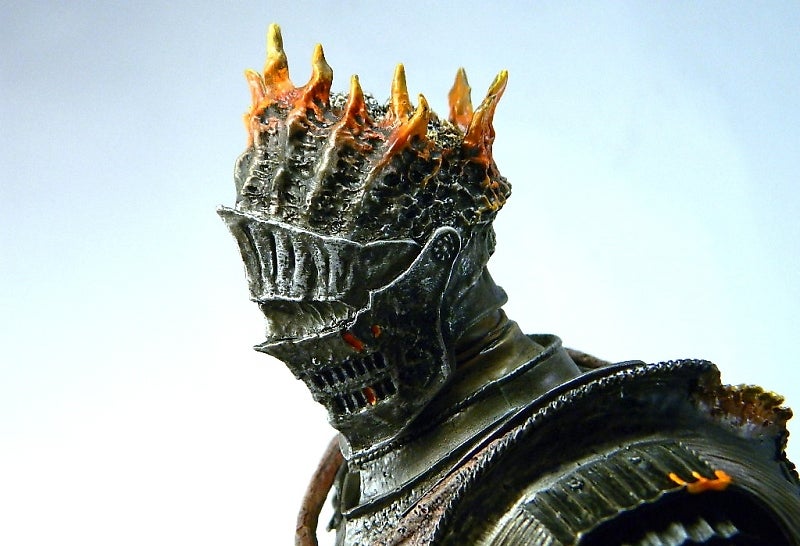
I’m not talking about the notorious complexity yet. Yes, for many these games are difficult, dishonest, developers use cheap tricks to make players die more often and this is partly true, but the fact is that all these deaths can be avoided if you don’t rush too much and show a little ingenuity and care. And this is where the problems begin. nine0003
Many developers believe that making players die as often as possible is one of the signs of «souls» and therefore it is necessary to set as many traps and mechanically difficult moments as possible so that only after a few dozen attempts it would be possible to somehow pass them ( I say hello to that bad person who came up with the idea of poking a bunch of traps in the first location of Mortal Shell).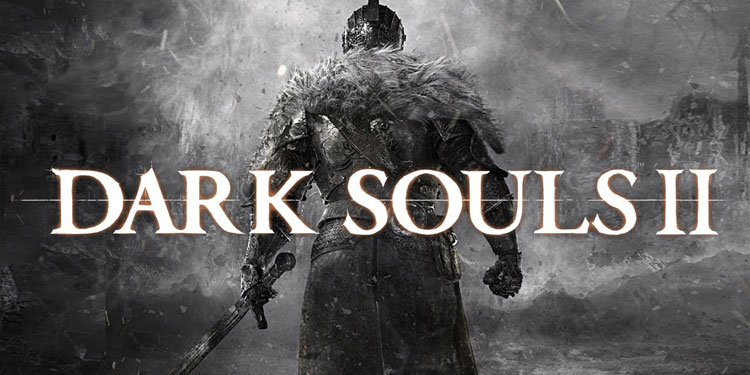 Souls are also often frustrated, but this does not happen as often as in many other soul-likes.
Souls are also often frustrated, but this does not happen as often as in many other soul-likes.
These are literally games for everyone
According to Richard Bartle’s typology, there are four main types of players: killer, hoarder, socialist and explorer. Yes, this typology is 100% valid only for MMOs and there are many other more accurate and universal typologies, but I took it as a simplified example.
Well, everyone, literally each of these types of gamers can find something for themselves in these games. For the killer, a huge space is provided for pvp battles with other players, whether it be invasions or fair duels, as well as the depth of elaboration of combat specifically for pvp. The accumulator will be able to enjoy the even and noticeable leveling of his character, the passage of the storyline and the completion of all side quests, collecting all the items and spells to get all the achievements.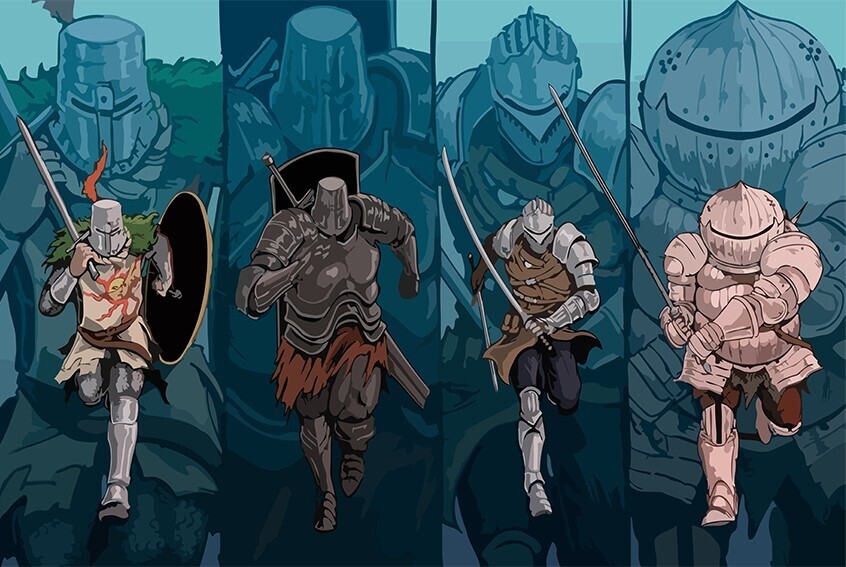 nine0003
nine0003
There is a huge scope for social workers to interact with other people, whether it’s leaving messages and receiving feedback in the form of voices, or directly helping other people through call tags, and the gesture system will help to understand each other even without the need for voice or text communication. Well, the researchers will find for themselves a huge, well-developed and rich in all sorts of secrets game world, which allows you to both physically explore it, discovering new and uncharted territories, and explore the lore in order to reveal all the details of all the events that occurred before the start of the adventures of the protagonist. nine0003
I, as a researcher-socialist, got incredible pleasure, learning how to lore games through descriptions of objects, dialogues, articles on wikis and videos other people , while studying mechanics and learning more and more about the properties of objects, resistances and vulnerabilities of opponents , about secret places and passages, etc.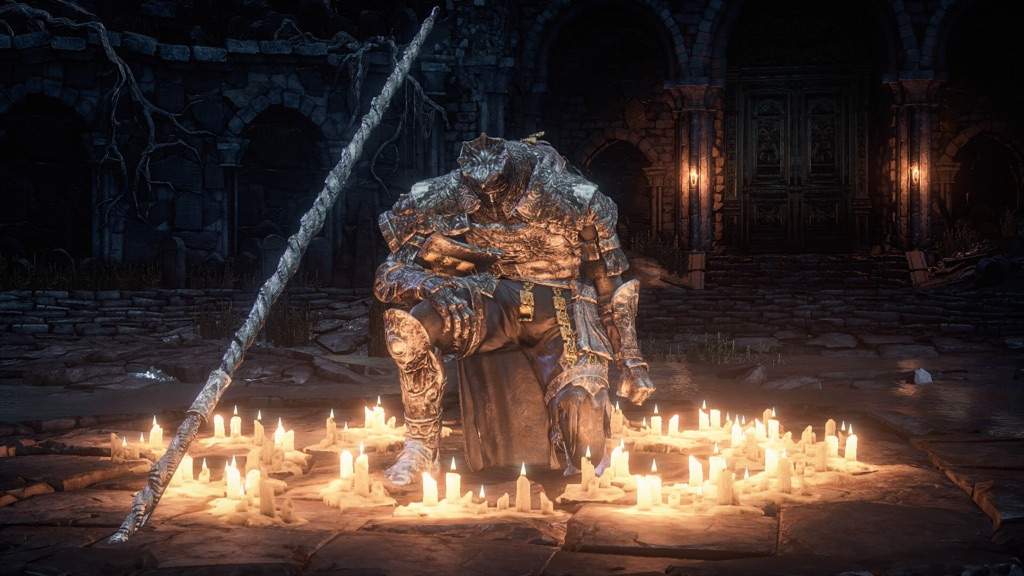 , and when all this content was exhausted for me, I went to invade people, but not so much to kill them, but solely for fun, running through the location with the host and helping him, so that later arrange a fair duel. It doesn’t always work out, but that’s the point — every invasion brings something new and interesting. nine0003
, and when all this content was exhausted for me, I went to invade people, but not so much to kill them, but solely for fun, running through the location with the host and helping him, so that later arrange a fair duel. It doesn’t always work out, but that’s the point — every invasion brings something new and interesting. nine0003
And yet, even so, you shouldn’t forget that souls are very peculiar in narrative, gameplay and technical terms, and many people simply may not like soul .
The release of Elden Ring is just around the corner and this will be the first From Software game I play on release. Study lore together with everyone, explore locations together with everyone and learn the intricacies of gameplay, explore the meta in pvp together with everyone and create battle tactics together against bosses and ordinary opponents, as well as against other players and different assemblies — how can I do this not enough.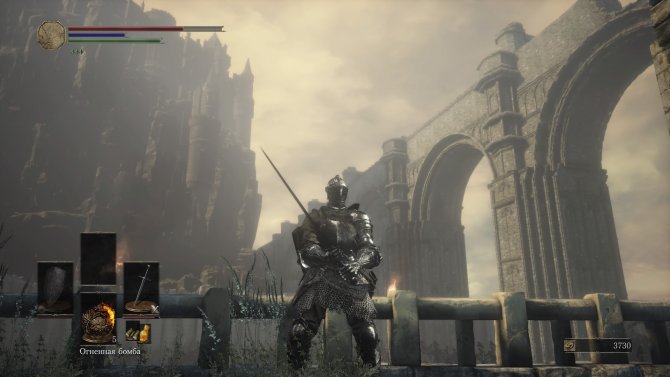 nine0003
nine0003
I came to Dark Souls III with everything ready, but even so the game was incredibly interesting to explore. I’m even afraid to imagine what kind of emotions Elden Ring will give me, but I’m sure that they will be (mostly) positive.
Mortal Shell Overview
The last game in the Dark Souls series was released four years ago, which is a long time to make fans of the series start to miss that hardcore action game. If you believe the authors of the series themselves, the From Software team, the third part was the finale of the franchise and most likely there will be no continuation. During this time, the developers themselves managed to release the heir to the series in the form of Sekiro: Shadows Die Twice, as well as announce Elden Ring. True fans of hardcore action-RPGs simply did not have time to miss the Souls-like genre and thanks to releases from large and small studios that tried to create something new in various ways. A small team from Cold Symmetry with their Mortal Shell is trying their best to recreate the same feelings from Dark Souls.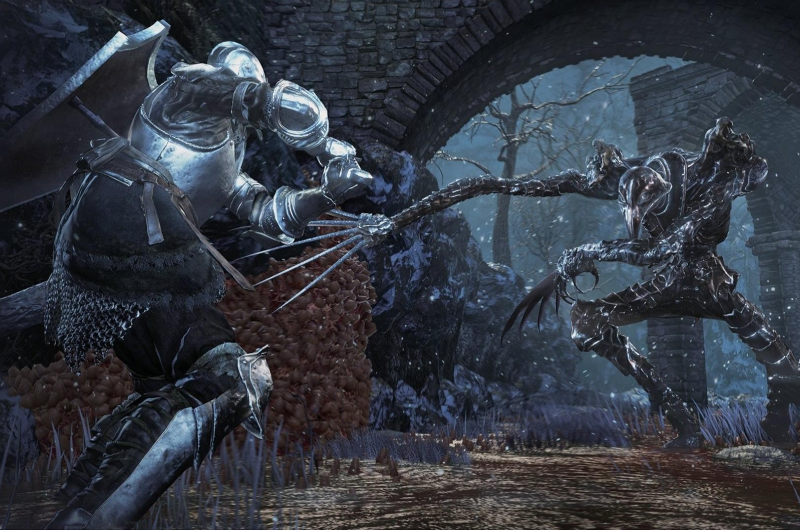 Apparently, they have a really worthy heir, but not without “features”. nine0003
Apparently, they have a really worthy heir, but not without “features”. nine0003
At the very beginning of the game, the developers clearly demonstrate that they drew inspiration exclusively from Dark Souls. Here, literally everything reminds of Souls: the font, some animations of hits, the style of locations, and much more. Here, even the descriptions of items are made in exactly the same style, and during loading a screen appears with a description of a particular item. At some point, it may even seem that all these similar elements were simply taken from Dark Souls and inserted into a new game, but this is still not entirely true. Familiar elements are found primarily in visual design, as if the authors are trying to return us to a familiar universe in this way. The constant comparison between Dark Souls and Mortal Shell is likely to haunt you throughout your entire playthrough, sometimes causing anger and frustration, and sometimes pleasant warm feelings from returning to a beloved world or familiar gameplay.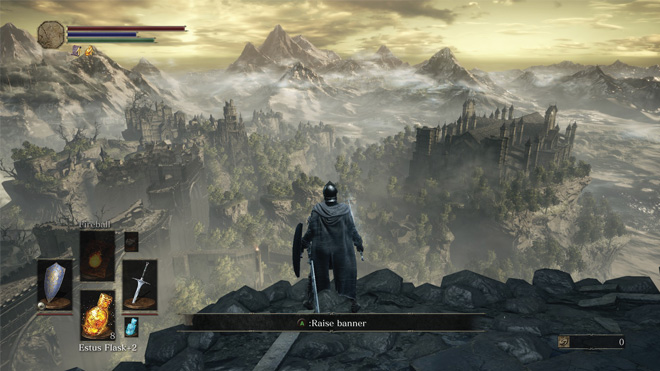 nine0003
nine0003
Mortal Shell does not have the usual storytelling or quests with precise instructions for what to do. The world of the game is revealed solely from fragments of descriptions on objects, as well as in the dialogues of a few characters, together forming the lore of the game. It is still very early to judge how interesting or deep it is, in many respects its disclosure will depend on the fans of the new project, but the game kindly provides a field for its study and interpretation in the form of a built-in reference book. This allows, if desired, to familiarize yourself with all the notes found right inside the game by going to the appropriate menu section. Mortal Shell, as in Dark Souls, primarily relies on the gameplay and its own mechanics. nine0003
Since the game was created by a small team, there is no character editor, no class system, and no basic stats for your character. There is no problem in this, because the overall gameplay is built comprehensively and fully. The main serious difference between Mortal Shell is that you are able to move into the shells of dead characters. There are only four of them in the game, each of them has a fixed amount of health and stamina, as well as unique abilities. Conventionally, they can be divided into peculiar classes. For example, there is a rogue with a low amount of health, which is able to restore him from poison. Or a kind of tank that has a large amount of health and a small supply of strength, but one of its abilities allows you to increase the impact force from each killed enemy. This is the whole progression of Mortal Shell. It will not be difficult to open all the abilities of all characters. However, you can focus on a few characters to fit your unique playstyle and provide some mobility in emergency situations, as the game allows you to quickly switch between skins
The main serious difference between Mortal Shell is that you are able to move into the shells of dead characters. There are only four of them in the game, each of them has a fixed amount of health and stamina, as well as unique abilities. Conventionally, they can be divided into peculiar classes. For example, there is a rogue with a low amount of health, which is able to restore him from poison. Or a kind of tank that has a large amount of health and a small supply of strength, but one of its abilities allows you to increase the impact force from each killed enemy. This is the whole progression of Mortal Shell. It will not be difficult to open all the abilities of all characters. However, you can focus on a few characters to fit your unique playstyle and provide some mobility in emergency situations, as the game allows you to quickly switch between skins
By the way, the leveling and purchase of items takes place at the expense of two currencies: tare and experience. The first item acts as money, it can be obtained from various items and by killing enemies. But experience is not so easy to get here, since it is necessary for buying unique items and shell abilities, it very rarely drops out of killed opponents, and at the beginning it is quite difficult to find.
But experience is not so easy to get here, since it is necessary for buying unique items and shell abilities, it very rarely drops out of killed opponents, and at the beginning it is quite difficult to find.
There is no usual blocking here, or rather it is, but it is presented in an unusual form, as the “Petrification” ability. You do not have a shield or other equipment that can block enemy attacks, you can only use a unique ability that completely immobilizes you, absorbing all incoming damage and causing some opponents to go into a small stupor after being hit. This ability has a very strong effect on the pace of the battle, because you don’t have the opportunity to always close with a shield and you need to take into account additional timings for its use. In addition, the petrification effect can be used as a kind of offensive ability, as it can be used even while you are hitting or falling to the ground. Proper application of the effect can save you from unnecessary damage during an untimely strike, and at the same time give you the opportunity to hit your opponent. The ability to counterattack here appears only with the receipt of a special item that can be improved and various effects added to it. After a successful counterattack, you can restore some of your health or apply a special skill. But these effects will be available to you only if you have determination — an analogue of adrenaline from The Witcher, providing access to various abilities of your character or weapon. nine0003
The ability to counterattack here appears only with the receipt of a special item that can be improved and various effects added to it. After a successful counterattack, you can restore some of your health or apply a special skill. But these effects will be available to you only if you have determination — an analogue of adrenaline from The Witcher, providing access to various abilities of your character or weapon. nine0003
The range of weapons in the game is modest, but it makes up for it with attack speed, power, and skill sets that can be unlocked. Using special artifacts, you can not only increase the damage of weapons, but also unlock their unique abilities. With a huge sword, you can cause an ice explosion, freezing all enemies nearby, and with a mace, you can provoke a fiery explosion and set fire to the enemy. As a long-range weapon, in the game you can find only its only representative — Ballistazuk. It does not have any effects or abilities, it is corny powerful. As if you have a real portable ballista in your hands — with one shot you can send an ordinary enemy into a distant flight or throw off the balance of the boss. nine0003
nine0003
In general, this is where the unique moments of Mortal Shell came to an end, the remaining important aspects largely repeat their inspirer and by no means from the best side. Each of your encounters with an ordinary enemy is more likely not a test of your skills and reaction, but a test of knowledge about the timings, speed and range of his attacks. Unfortunately, you will be literally forced to learn the patterns of even simple enemies in order not to miss the damage. After all, restoring health at the expense of consumable items can be long and expensive, and at the expense of a counterattack is too dangerous. Unpleasant difficulties are added by very close locations. Throughout the passage, you will be haunted by the fear of a sudden attack, because even in the cramped corridor of the catacombs, an enemy can unexpectedly attack you from an inconspicuous corner. Perhaps the developers tried to achieve such a goal, but in such cramped conditions they only cause irritation.